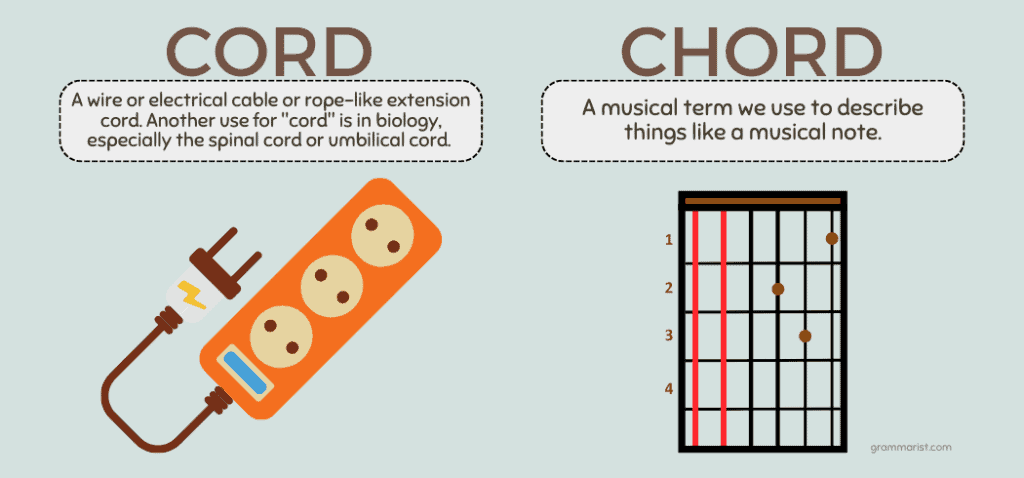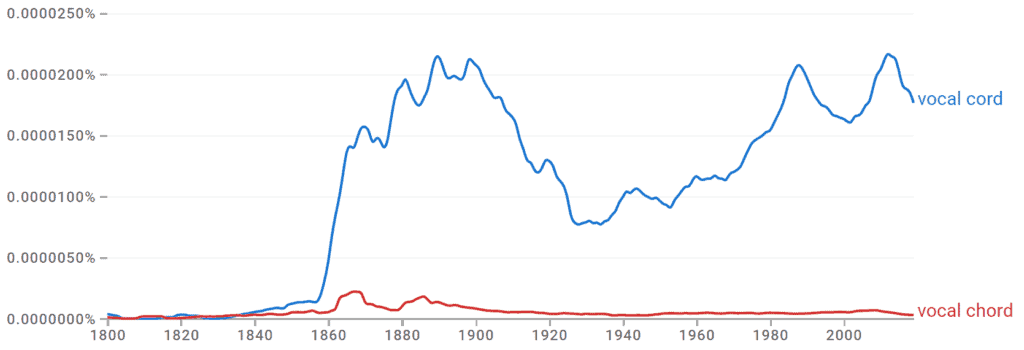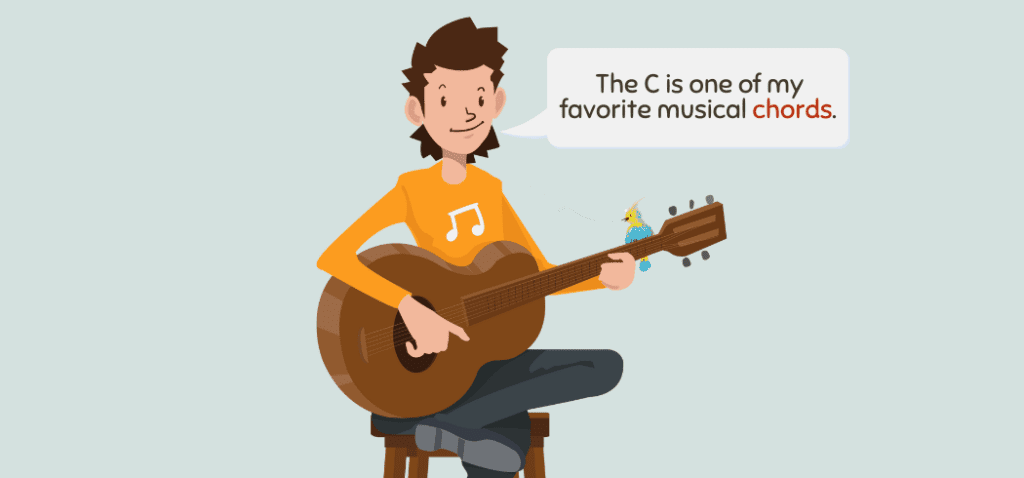Homophones just love to make things difficult, don’t they? Like the words cord and chord, they are identical to the ear, but on paper, that’s another story. They each have completely different definitions, but here are rare cases where they can be used interchangeably. So, I’ll break down all the details you need to know about the difference between a cord and a chord.
Cord vs. Chord: What’s the Difference?

To keep things simple off the bat, a cord is a wire or electrical cable or rope-like an extension cord. It’s also the term used to refer to a large amount of chopped wood, about 128 cubic feet. Another common use for “cord” is in biology, especially the spinal cord or umbilical cord.
But a chord is a musical term we use to describe things like a musical note. But there are tons of other uses for these two homophones, so let’s take a look.
Is It an Electrical Cord or Chord?
In American, UK, and Canadian English, it’s always “electrical cord” when referring to wires, extension cords, cables, etc.
Is It Struck a Chord or Cord?
When someone says the cliché idiom, “that struck a chord,” they mean that whatever you or someone else said or did affected them in an emotional way, aka hitting a certain chord within them and getting an emotional response.
While the word “chord” usually means musical notes, it’s often used in this idiom to show when things touch a nerve or poke at something personally. But it’s never “struck a cord.”
Is It Vocal Cord or Chord?
Here is probably one of the only instances where “cord’ and “chord” can be used interchangeably and be correct. In American English, cord is more widely accepted. But in the UK and other regions, “chord” is more common. This is because, from a scientific perspective, “cord” is physically what your vocal make-up looks like.

But your vocal cords also make sounds, like chords, hence the alternative spelling “chord.” So, to answer the question, you can use both vocal cord and vocal chord, but “cord” is going to be more common.
The Etymology of Cord and Chord
Here’s where things get really confusing. So, the word “cord” derives from the Latin word chorda, meaning the string on a musical instrument.
But the word “chord” comes from the French word corde, shortened from accord, both related to notes found in music.
So, they both have roots within music, and their spellings with and without an H have crossed over throughout time. But, ultimately, “cord” means string, while “chord” means the sound you get when plucking the string.
How Do You Use Chord and Cord in a Sentence?

Here are a few examples in a sentence that show the difference between using both of these words.
- That comment Derek made about my weight really struck a chord.
- I need you to play chords A and E after I begin the chorus.
- My dad’s home is heated by a wood stove, so he chopped four cords of wood for the winter.
- Careful not to trip over that cord that runs straight across the room.
- I got to cut the umbilical cord when my son was born.
- The C is one of my favorite musical chords.
- They make most extension cords orange so you can easily spot them and not trip on them or cut them.
- I only know three chords so far, but I’m learning to play guitar pretty fast, and I really enjoy it.
- I was born with my spinal cord twisted.
- My husband has a huge plastic toe reserved just for his many extension cords.
Bottom Line
There you have it, folks. That should explain the difference between the words cord and chord well enough for you to understand. The differences are slight, but just remember that “chord” is used in music, like a chorus, which is spelled similarly. Unless you’re talking about your vocal cords, in which case, you can use both words, and you’d be correct. Just note that “cord” is the more common of the two.

Comments are closed.